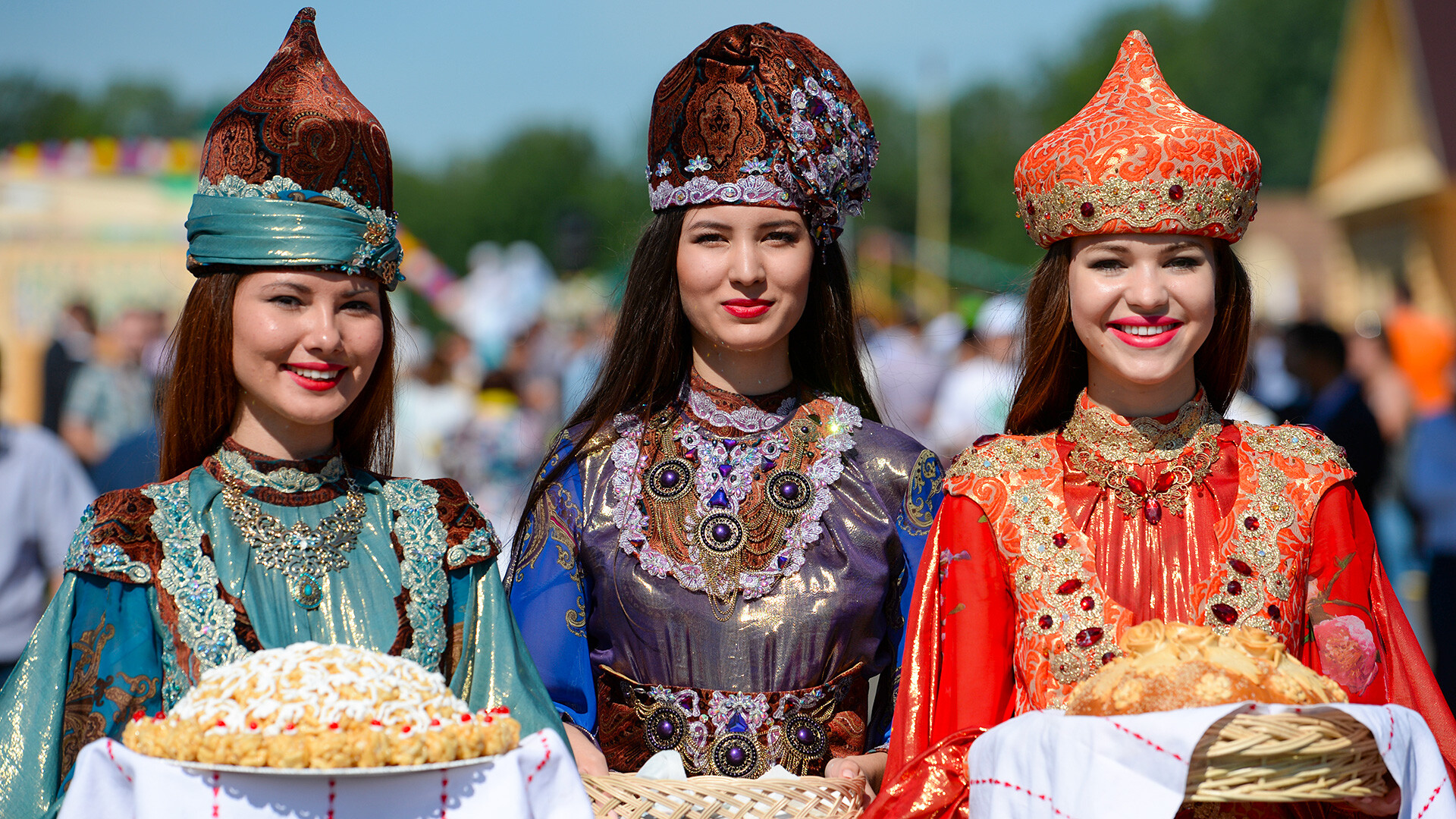
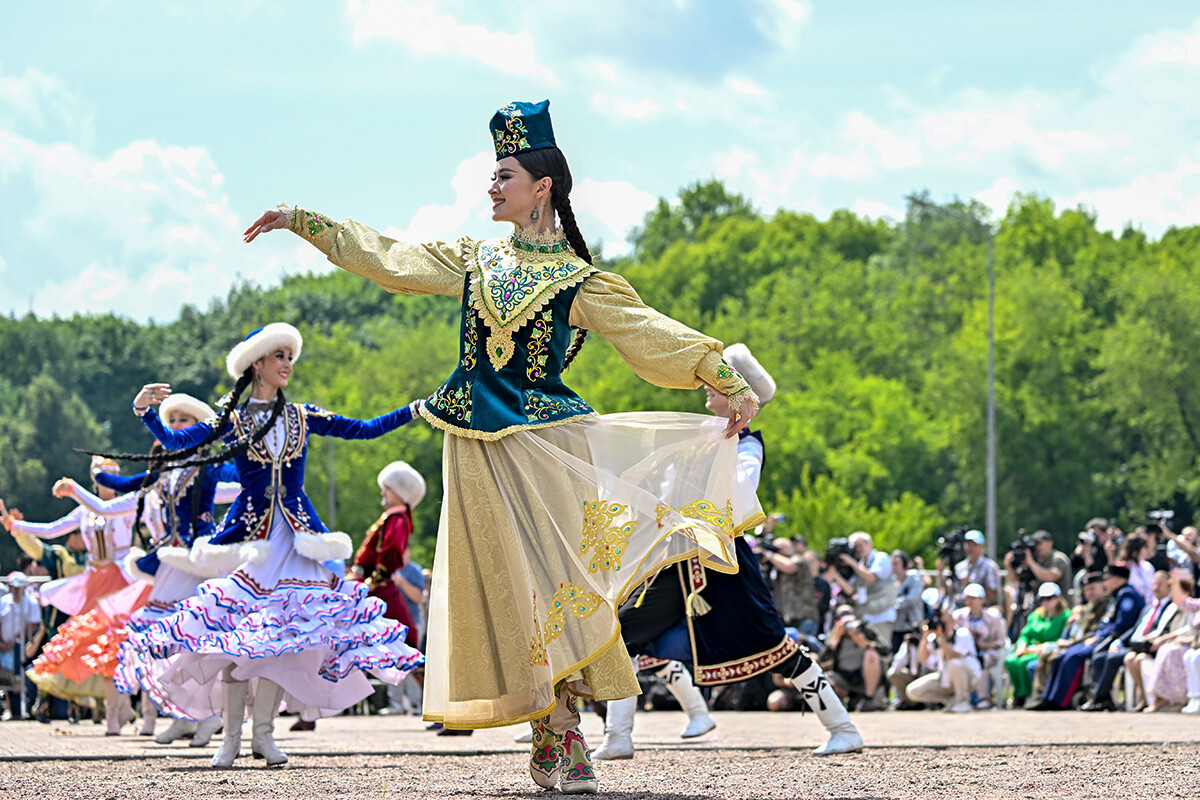
Tatars are the second most populous people in Russia (4.7 million) after Russians. Most of them live in Tatarstan and Bashkiria, as well as in Siberia. But, no matter where they live, every summer, the Tatars celebrate ‘Sabantuy’, literally “the holiday of the plow”.
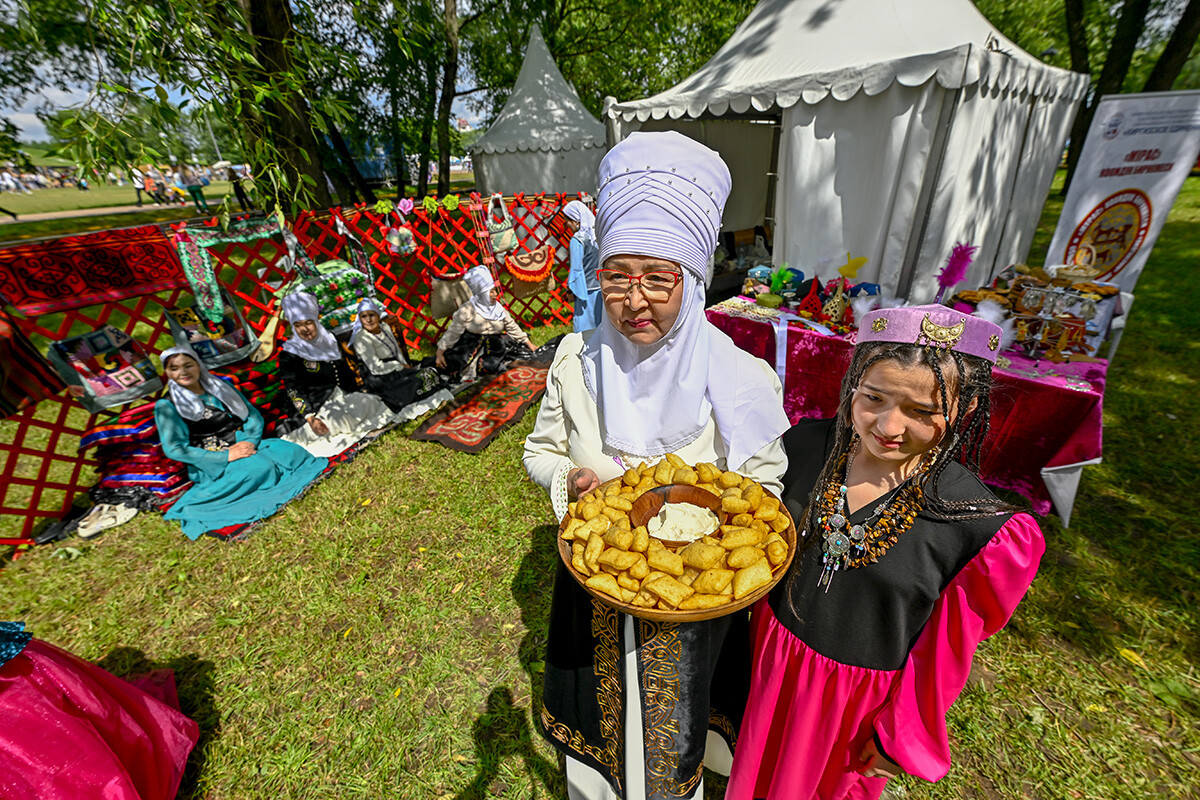
This day marks the end of spring field work. In ancient times, during ‘Sabantuy’, young people would meet and find a partner.
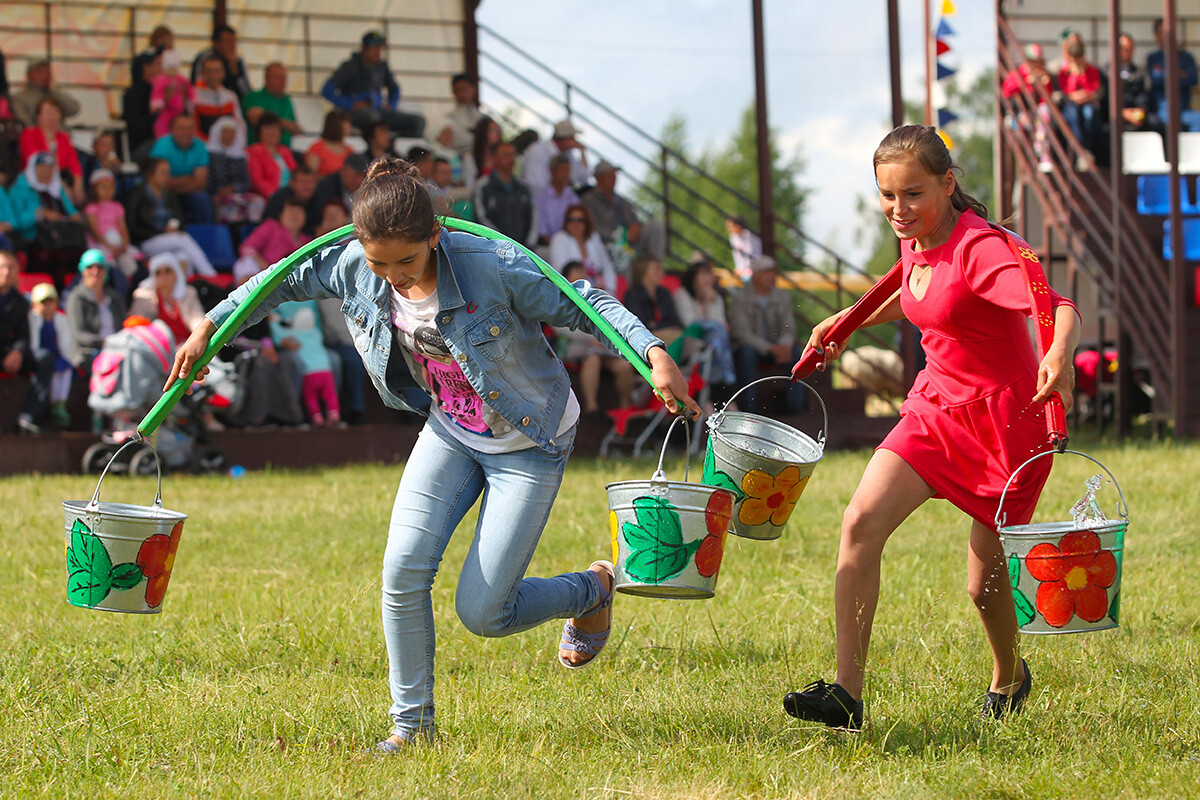
‘Sabantuy’ conventionally consists of three parts: it begins with ancient rituals, then there are competitions in traditional sports (‘kuresh’ belt wrestling, horse racing, jumping) and ends with festivities.
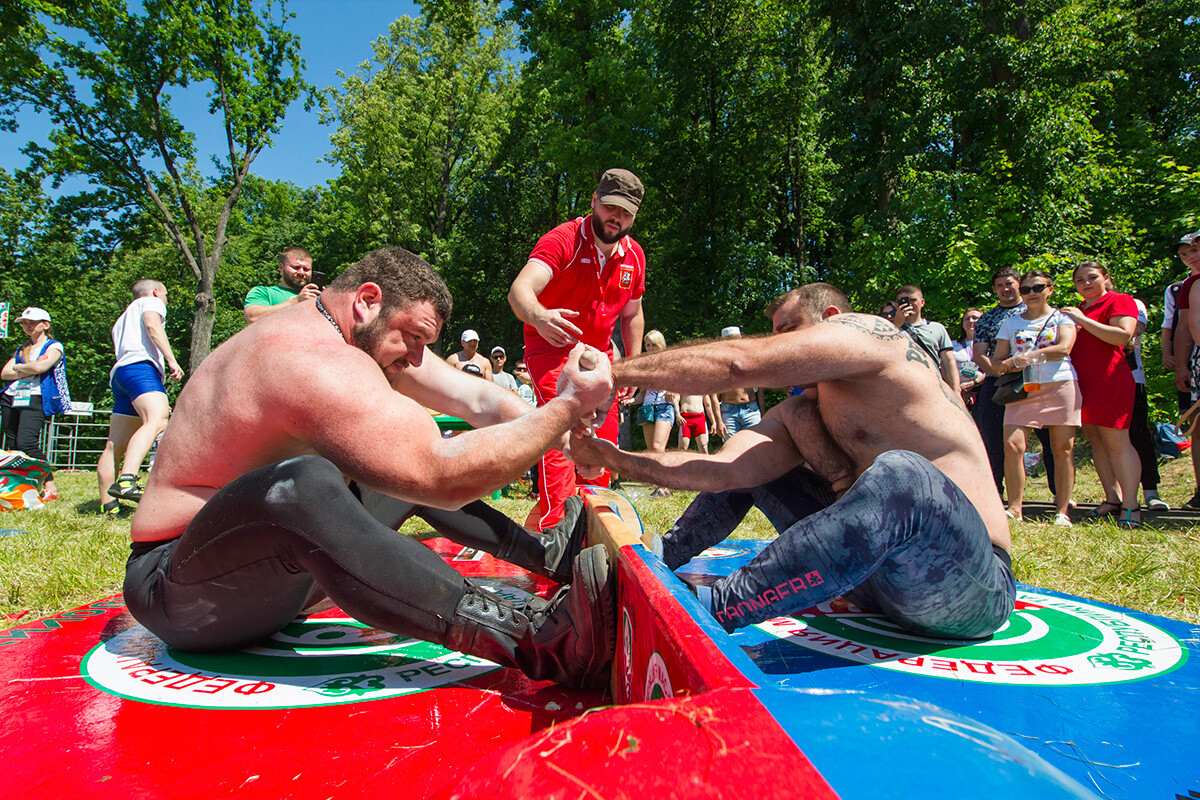
According to tradition, it is customary to give towels embroidered with national patterns and offer boiled eggs on ‘Sabantuy’. Every family collects as much as they can for gifts to the winners. As a rule, agricultural workers are also rewarded on ‘Sabantuy’.
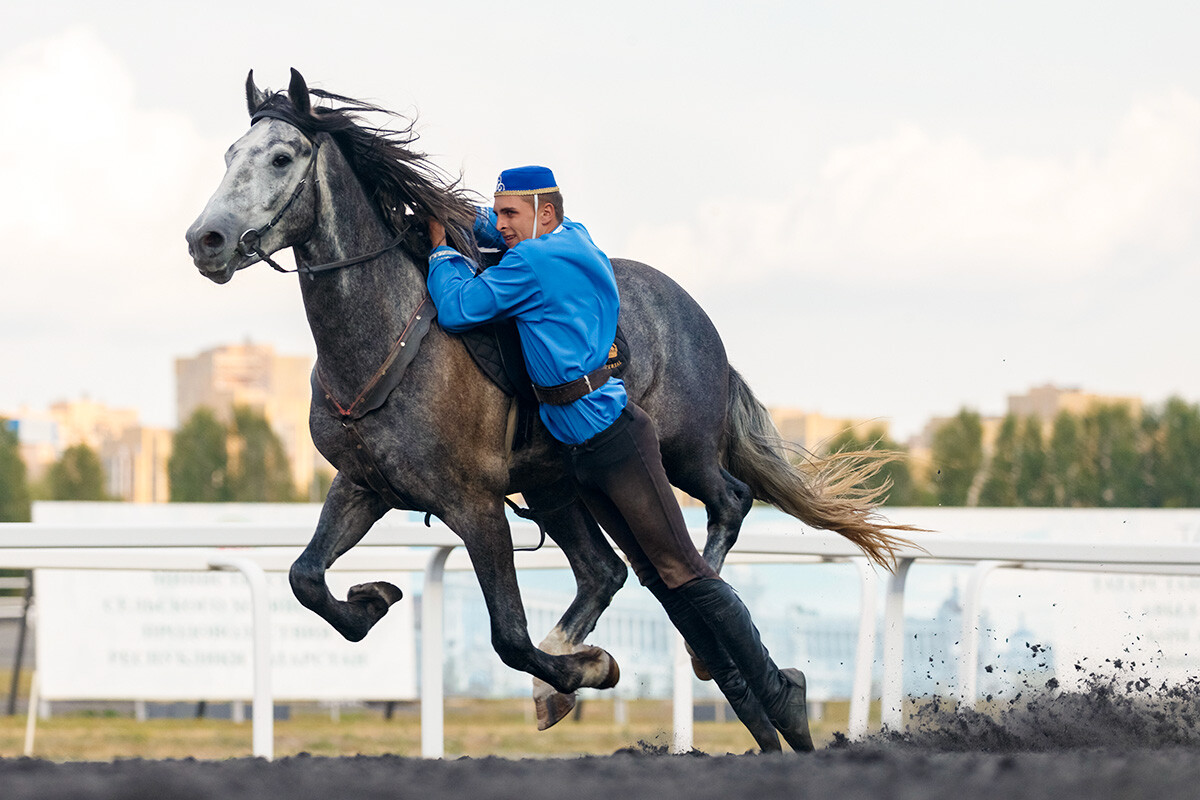
‘Sabantuy’ is also famous for its folk entertainments. For example: running with a yoke, beating pots, and fighting with sacks on a log.
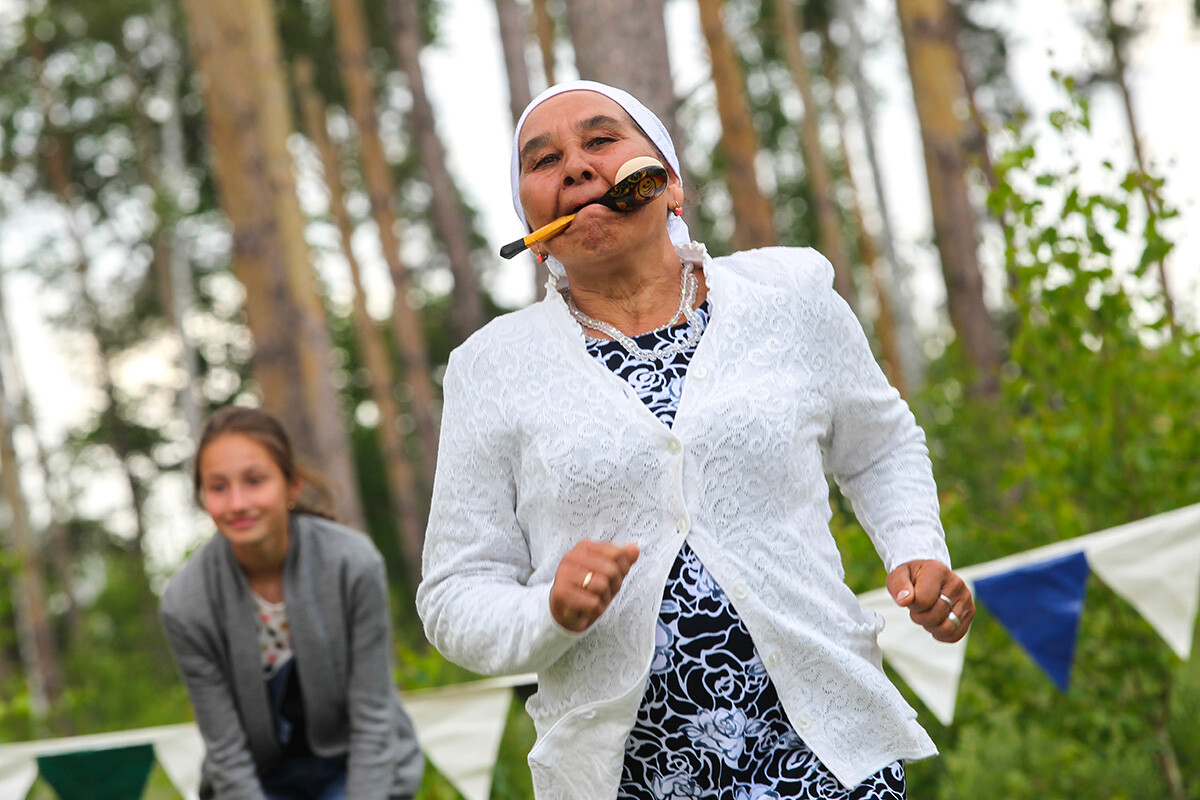
All day long, guests try various Tatar national dishes - triangular ‘echpochmak’ pies, round ‘elesh’ pies, ‘chak-chak’ honey cookies, ‘baursak’ donuts and flavored tea.
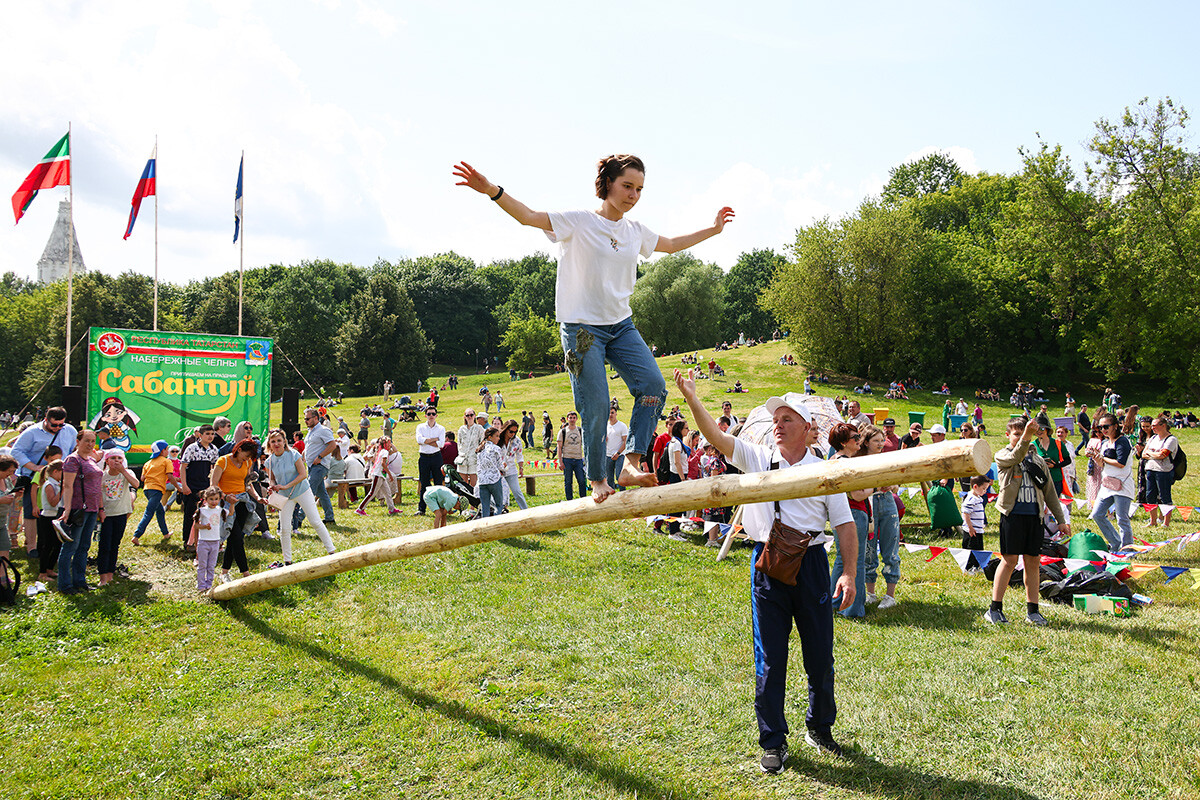
Each locality sets its own dates, which also change from year to year. As a rule, the holiday falls in mid-June to early July. The main ‘Sabantuy’ takes place in Kazan, the capital of Tatarstan. In addition, other regions also host large festivals - the Federal ‘Sabantuy’ and the All-Russian Countryside ‘Sabantuy’, which change their venues every year.
Dear readers,
Our website and social media accounts are under threat of being restricted or banned, due to the current circumstances. So, to keep up with our latest content, simply do the following:
If using any of Russia Beyond's content, partly or in full, always provide an active hyperlink to the original material.
Subscribe
to our newsletter!
Get the week's best stories straight to your inbox